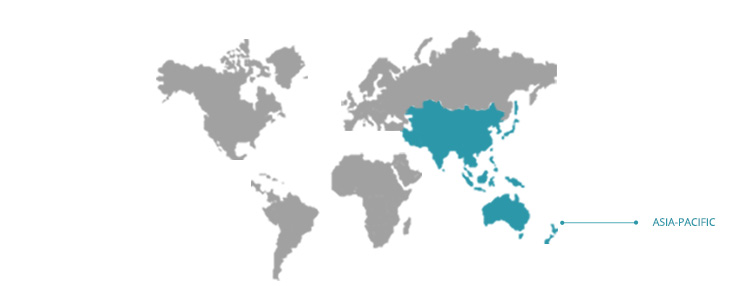The report on the Asia-Pacific system integration market provides related insights, information, and recommendation to market stakeholder to achieve their priorities and enable the growth by taking the right decisions. The research covers the Asia-Pacific system integration market across key countries and companies. The report is based on rigorous research methodology, which includes extensive desk research using quantitative/statistical methods, qualitative analysis, and primary interviews. This report examines the market scope, revenue size, and growth of the Asia-Pacific system integration market in value terms, and also tracks the key trends at country level. Moreover, it includes qualitative analysis on different parameters such as impact on market size, regulatory framework, economic impact, key player strategies, and opportunity window. The company profile section of the report covers company overview, key executives, company snapshot, operating business segments, product/service portfolio, R&D expenditure, business performance, and key strategic moves & developments. The Asia-Pacific system integration market is segmented depending on service type, enterprise size, industry vertical. Country wise, the market is analyzed across Asia-Pacific (China, Japan, South Korea, Australia, India, Rest Of Asia-Pacific).
By Service Type
Data Integration segment Enterprises segment was the highest revenue contributor during the forecast period.
COVID-19 Impact Analysis
The eruption of the COVID-19 pandemic is projected to have a huge impact on the economic and social development. Therefore, the report portrays micro and macro economic analyses. The report further provides a qualitative analysis of impact of COVID-19 on the Asia-Pacific system integration market. Moreover, the study emphasizes on the market size and share, which will reflect the impact that COVID-19 has had on the Asia-Pacific system integration market in 2020 and is likely to have in the subsequent years. In addition, the report outlines the key strategies adopted by key players during the global health crisis. Moreover, the roll-out of vaccines and decline in chance of infection are expected to influence the Asia-Pacific system integration market growth. Therefore, the report provides post COVID-19 impact analysis.
By Enterprise Size
SMEs segment would exhibit a CAGR of 19.5% during forecast period.
Deliverables:
Market size value forecast by country
Country level market trends and dynamics
Porter’s Five Forces Model, PESTLE Analysis
Company profile, competition landscape inclusive of competition dashboard, heatmap analysis, product/service offerings
Key developmental strategies, M&A activities
Country Wise market size and forecast for each segment
Market Share of Leading Players worldwide
Market Taxonomy
This report segments the Asia-Pacific system integration market on the basis of service type, enterprise size, industry vertical. On the basis of country, the Asia-Pacific system integration market is segmented into Asia-Pacific (China, Japan, South Korea, Australia, India, Rest Of Asia-Pacific)
ASIA-PACIFIC SYSTEM INTEGRATION MARKET REVENUE

Graph for representation purpose only
Asia-Pacific System Integration Market Report Highlights
| Aspects | Details |
| By Service Type |
|
| By Enterprise Size |
|
| By Industry Vertical |
|
| By Country |
|
Loading Table Of Content...



